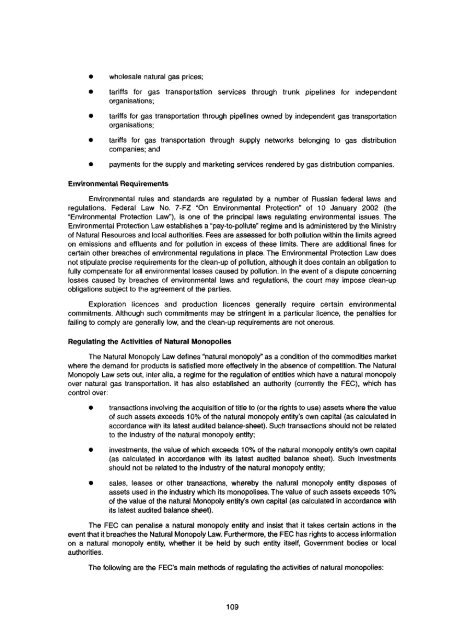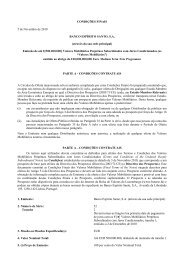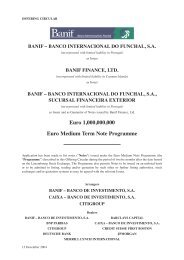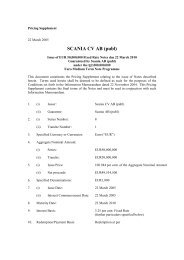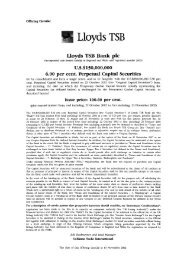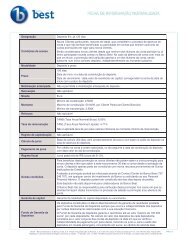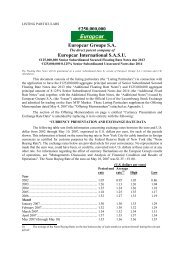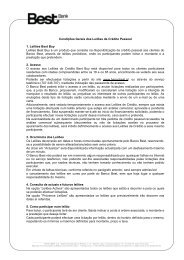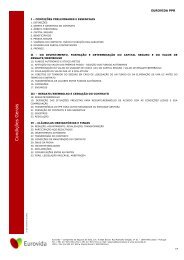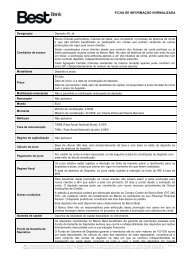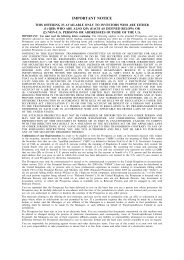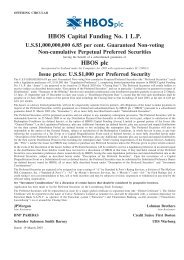Open Joint Stock Company Gazprom
Open Joint Stock Company Gazprom
Open Joint Stock Company Gazprom
You also want an ePaper? Increase the reach of your titles
YUMPU automatically turns print PDFs into web optimized ePapers that Google loves.
• wholesale natural gas prices;• tariffs for gas transportation services through trunk pipelines for independentorganisations;• tariffs for gas transportation through pipelines owned by independent gas transportationorganisations;• tariffs for gas transportation through supply networks belonging to gas distributioncompanies; and• payments for the supply and marketing services rendered by gas distribution companies.Environmental RequirementsEnvironmental rules and standards are regulated by a number of Russian federal laws andregulations. Federal Law No. 7-FZ "On Environmental Protection" of 10 January 2002 (the"Environmental Protection Law"), is one of the principal laws regulating environmental issues. TheEnvironmental Protection Law establishes a "pay-to-pollute" regime and is administered by the Ministryof Natural Resources and local authorities. Fees are assessed for both pollution within the limits agreedon emissions and effluents and for pollution in excess of these limits. There are additional fines forcertain other breaches of environmental regulations in place. The Environmental Protection Law doesnot stipulate precise requirements for the clean-up of pollution, although it does contain an obligation tofully compensate for all environmental losses caused by pollution. In the event of a dispute concerninglosses caused by breaches of environmental laws and regulations, the court may impose clean-upobligations subject to the agreement of the parties.Exploration licences and production licences generally require certain environmentalcommitments. Although such commitments may be stringent in a particular licence, the penalties forfailing to comply are generally low, and the clean-up requirements are not onerous.Regulating the Activities of Natural MonopoliesThe Natural Monopoly Law defines "natural monopoly" as a condition of the commodities marketwhere the demand for products is satisfied more effectively in the absence of competition. The NaturalMonopoly Law sets out, inter alia, a regime for the regulation of entities which have a natural monopolyover natural gas transportation. It has also established an authority (currently the FEC), which hascontrol over:• transactions involving the acquisition of title to (or the rights to use) assets where the valueof such assets exceeds 10% of the natural monopoly entity's own capital (as calculated inaccordance with its latest audited balance-sheet). Such transactions should not be relatedto the industry of the natural monopoly entity;• investments, the value of which exceeds 10% of the natural monopoly entity's own capital(as calculated in accordance with its latest audited balance sheet). Such investmentsshould not be related to the industry of the natural monopoly entity;• sales, leases or other transactions, whereby the natural monopoly entity disposes ofassets used in the industry which its monopolises. The value of such assets exceeds 10%of the value of the natural Monopoly entity's own capital (as calculated in accordance withits latest audited balance sheet).The FEC can penalise a natural monopoly entity and insist that it takes certain actions in theevent that it breaches the Natural Monopoly Law. Furthermore, the FEC has rights to access informationon a natural monopoly entity, whether it be held by such entity itself, Government bodies or localauthorities.The following are the FEC's main methods of regulating the activities of natural monopolies:109


